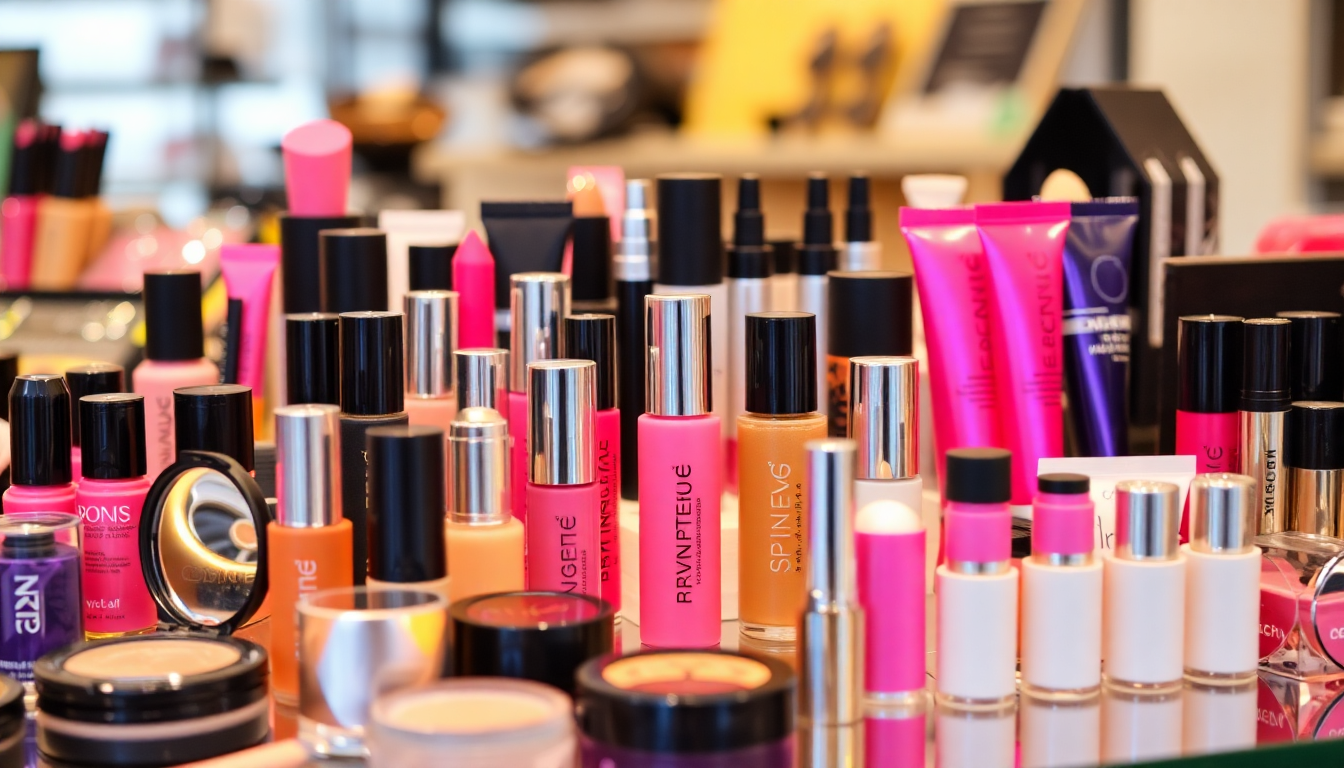
Launching Your Makeup Brand in 2025: Essential Insights on Private Label Cosmetics, Import Policies, and Marketing Strategies
Introduction
Entering the cosmetics industry in 2025 is an exciting venture, especially with the growing demand for unique and innovative makeup products. As consumers become more discerning, they seek brands that resonate with their values and preferences. This article will guide you through essential insights on launching your makeup brand, focusing on private label cosmetics, import policies, certifications, setting up your online store, and effective marketing strategies—all without the need for minimum orders.
Understanding Private Label Cosmetics
Private label cosmetics allow you to create your own brand without developing products from scratch. This approach has gained popularity due to its cost-effectiveness and flexibility. Below are some key benefits of private label cosmetics:
- Cost-Effective: You save on research and development costs, allowing you to invest more in marketing and branding.
- Brand Customization: Tailor products to fit your brand’s identity, including packaging, colors, and formulations to cater to your target audience.
- Quick Market Entry: With ready-made products, you can significantly reduce the time it takes to launch your brand in the market.
- Wide Range of Options: Private label manufacturers offer a variety of products, from foundations to lipsticks, giving you the flexibility to curate a diverse product line.
- Quality Assurance: Many private label manufacturers prioritize quality, ensuring that you can offer a reliable product to your customers.
Key Import Policies to Consider
When launching a makeup brand, understanding import policies is crucial for compliance and operational success. Here are some important factors to consider:
- Import Regulations: Research the regulations in your target market regarding the import of cosmetics. Different countries have varying rules that can affect your ability to sell your products.
- Tariffs and Taxes: Be aware of any tariffs that may apply to imported cosmetics. Understanding the financial implications will help you price your products competitively.
- Product Safety Standards: Ensure your products comply with safety standards set by governing bodies in your target market, such as the FDA in the U.S. or the European Commission in the EU.
- Labeling Requirements: Familiarize yourself with the labeling requirements for cosmetics in different regions, including ingredient lists, usage instructions, and allergen warnings.
- Customs Documentation: Proper documentation is essential for smooth customs clearance. Ensure you have the necessary import licenses, invoices, and product descriptions ready.
Essential Certifications for Your Makeup Products
Certifications enhance your brand’s credibility and build trust with consumers. Consider obtaining the following certifications:
- FDA Approval: If you're launching in the U.S., ensure compliance with the FDA regulations, which require pre-market approval for certain cosmetic products.
- ISO Certification: This standard shows commitment to quality management and can improve your brand’s reputation.
- Vegan and Cruelty-Free Certifications: These labels appeal to a growing consumer base focused on ethical products, making them essential for attracting conscious consumers.
- Organic Certifications: If you’re considering natural ingredients, obtaining organic certification can be a strong selling point.
- Good Manufacturing Practices (GMP): Adhering to GMP ensures that your products are consistently produced and controlled according to quality standards.
Setting Up Your Online Makeup Store
In today’s digital age, establishing an online presence is crucial for any new makeup brand. Here’s a comprehensive guide on how to set up your online store effectively:
- Choose an E-commerce Platform: Select a platform that suits your business needs. Options like Shopify, WooCommerce, and BigCommerce are popular choices, offering various features tailored for beauty products.
- Design User-Friendly Navigation: Ensure your website is easy to navigate and visually appealing. Organize products into clear categories and provide search functionality.
- Optimize for Mobile: A significant portion of online shopping happens on mobile devices. Ensure your website is fully responsive and offers a seamless mobile experience.
- Implement Secure Payment Options: Offer multiple secure payment methods, including credit cards, PayPal, and digital wallets, to cater to different customer preferences.
- Develop Engaging Product Pages: Use high-quality images, detailed descriptions, and customer reviews to enhance the shopping experience. Consider including videos or tutorials that showcase your products in use.
- SEO Optimization: Optimize your website for search engines by using relevant keywords, meta descriptions, and alt text for images. This will help drive organic traffic to your store.
Marketing Strategies for Your Makeup Brand
Effective marketing is essential to standing out in a crowded market. Here are some strategies to consider:
- Utilize Social Media: Platforms like Instagram and TikTok are powerful tools for beauty brands. Create visually appealing content that showcases your products and engages followers.
- Influencer Collaborations: Partner with beauty influencers to reach wider audiences. Influencers can provide authentic testimonials and help build your brand’s credibility.
- Content Marketing: Create valuable content such as tutorials, blogs, and reviews to engage your audience. Sharing beauty tips and makeup looks can position your brand as an industry authority.
- Email Marketing: Build an email list and send regular newsletters to keep your audience informed about new product launches, promotions, and beauty tips. Personalized emails can drive conversions and foster customer loyalty.
- Host Giveaways and Contests: Encourage engagement and grow your following by hosting giveaways or contests on social media. This can increase brand awareness and attract new customers.
- Leverage User-Generated Content: Encourage customers to share their experiences with your products on social media. Reposting user-generated content can enhance authenticity and build community.
Best Practices for Customer Engagement
Building a strong relationship with your customers is key to long-term success. Here are some best practices for customer engagement:
- Offer Excellent Customer Service: Respond promptly to inquiries and resolve issues efficiently. Exceptional customer service can lead to repeat business and positive word-of-mouth.
- Personalize the Shopping Experience: Use data analytics to understand customer preferences and tailor recommendations. Personalized experiences can increase customer satisfaction and loyalty.
- Solicit Feedback: Encourage customers to provide feedback on their purchase experience. Use this information to improve your products and services.
- Build a Community: Foster a sense of community around your brand by engaging with customers on social media, hosting events, or creating loyalty programs.
Conclusion
Launching your makeup brand in 2025 is an attainable goal with the right knowledge and strategies. By leveraging private label cosmetics, understanding import policies, obtaining necessary certifications, setting up an effective online store, and implementing strong marketing strategies, you can create a successful makeup brand that resonates with consumers. With the beauty industry constantly evolving, staying informed about trends and consumer preferences will be essential for your brand’s growth. Start your journey today and make your mark in the beauty industry!




